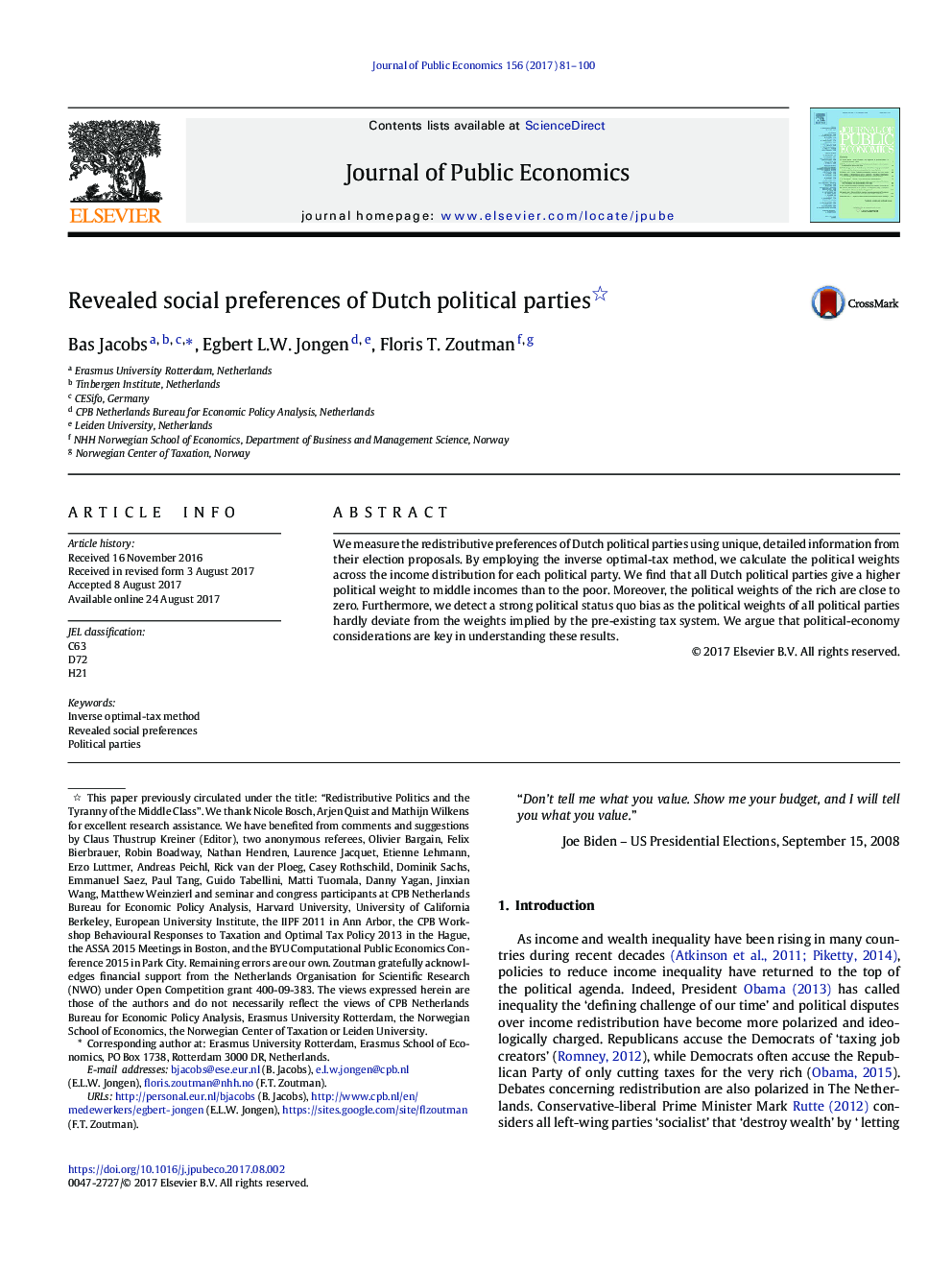| Article ID | Journal | Published Year | Pages | File Type |
|---|---|---|---|---|
| 7369700 | Journal of Public Economics | 2017 | 20 Pages |
Abstract
We measure the redistributive preferences of Dutch political parties using unique, detailed information from their election proposals. By employing the inverse optimal-tax method, we calculate the political weights across the income distribution for each political party. We find that all Dutch political parties give a higher political weight to middle incomes than to the poor. Moreover, the political weights of the rich are close to zero. Furthermore, we detect a strong political status quo bias as the political weights of all political parties hardly deviate from the weights implied by the pre-existing tax system. We argue that political-economy considerations are key in understanding these results.
Keywords
Related Topics
Social Sciences and Humanities
Economics, Econometrics and Finance
Economics and Econometrics
Authors
Bas Jacobs, Egbert L.W. Jongen, Floris T. Zoutman,
